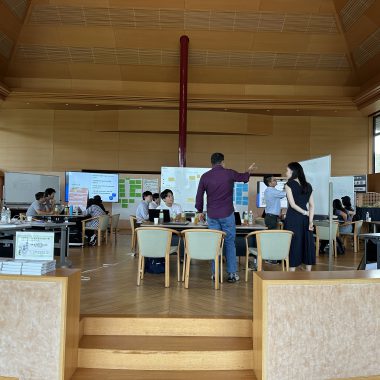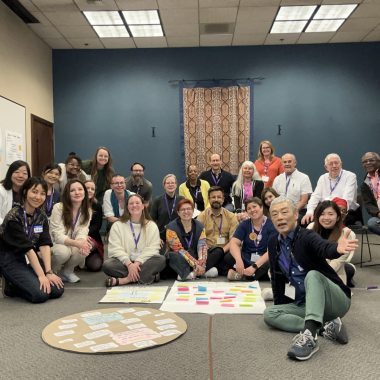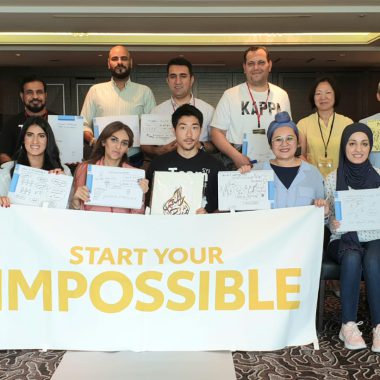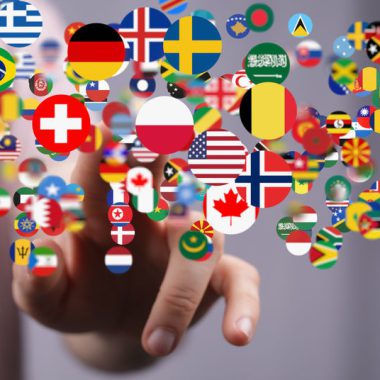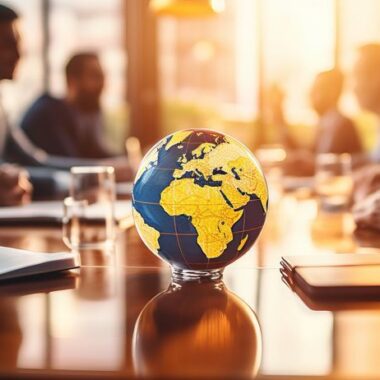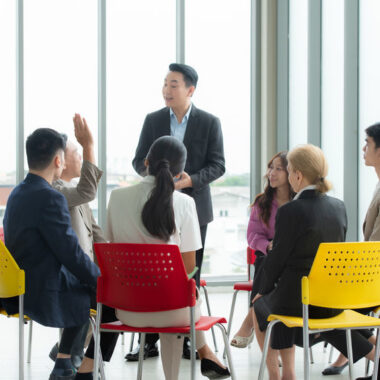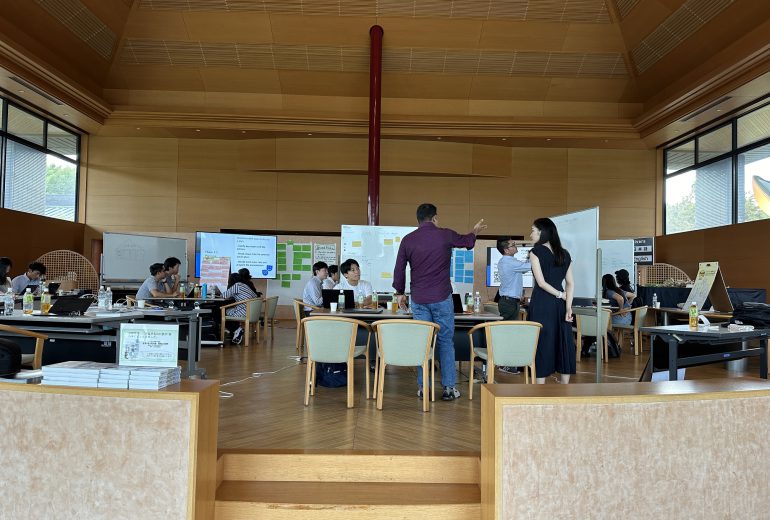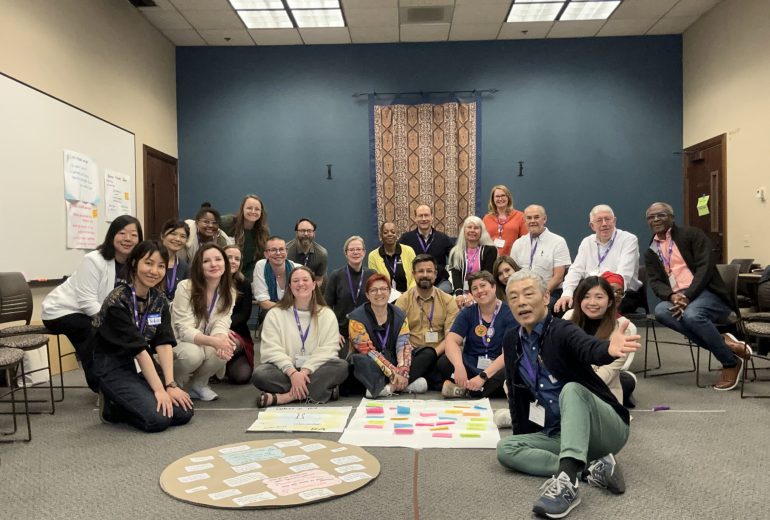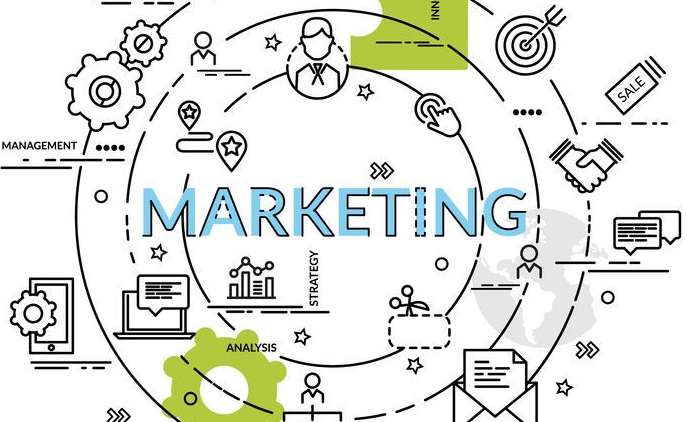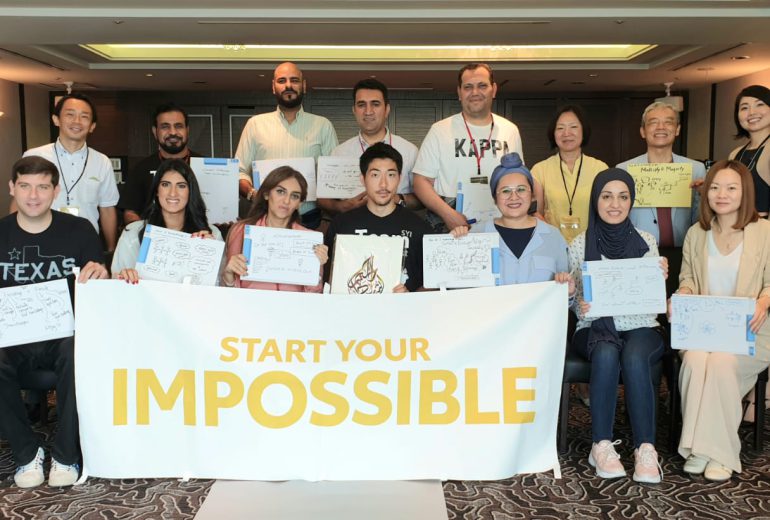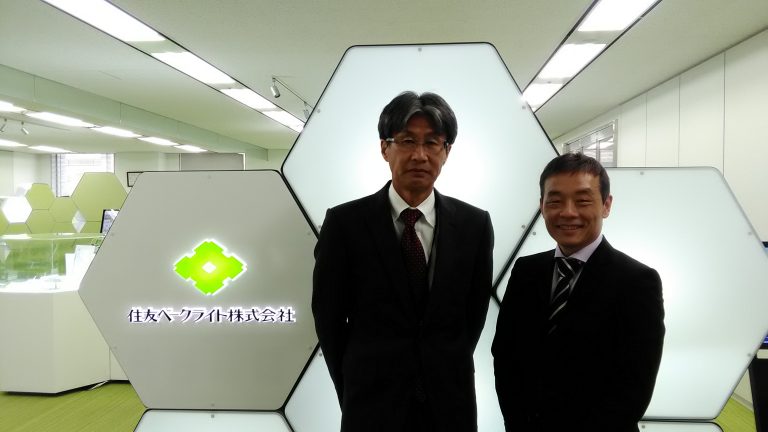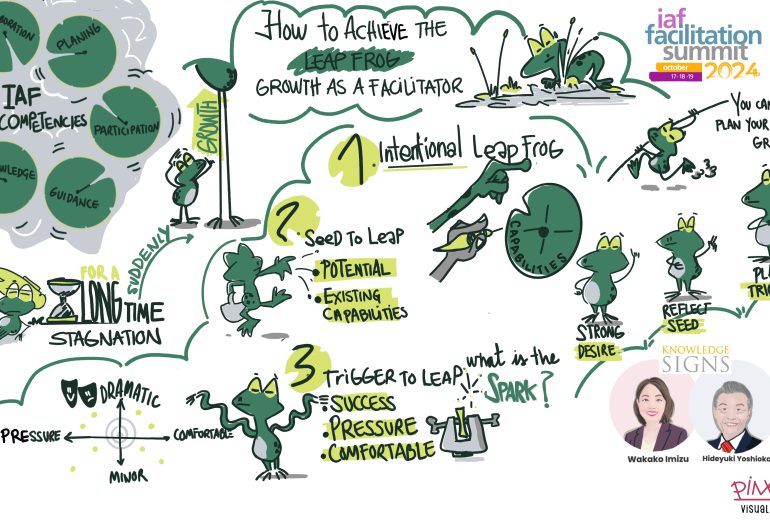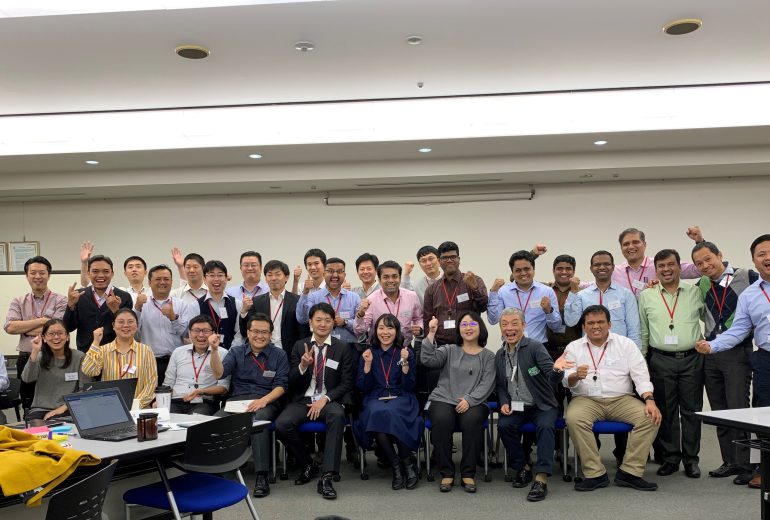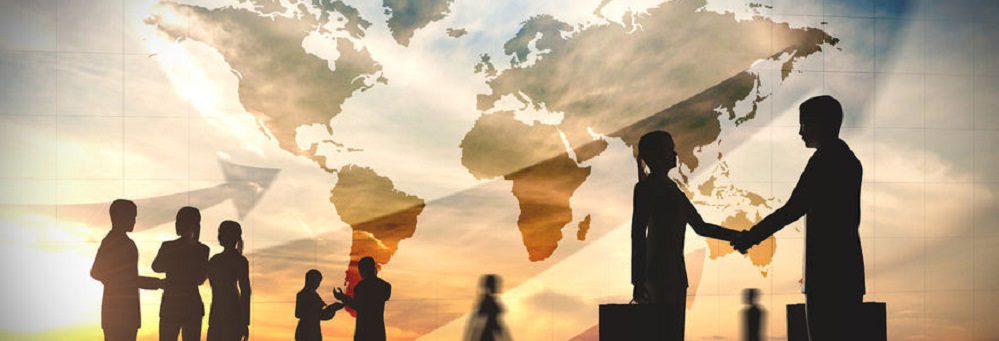This post is also written in the following language:
![]() 日本語 (Japanese)
日本語 (Japanese)
Workshop attended by 22 Group employees from 8 countries
Mitsubishi Chemical Corporation (MCHC) is a company that provides a wide variety of solutions in a wide range of fields from materials to functional products under the theme of KAITEKI realization, which aims to “ensure that people, society, and the Earth remain comfortable for a long time.
Among these, the Environment & Lifestyle Solutions Division is globally expanding its business rooted in our daily lives and social infrastructure, including water treatment, agriculture, and civil engineering.
For this two-day global team training program, we invited employees to Japan, who are active in Asia and Europe and who will lead the next generation of this division.
Knowledge Sign was involved in the program planning and facilitation of the workshop on the first day.
This event, titled “Get-Together 2019”, was attended by 22 global leaders from eight countries: China, India, Thailand, Taiwan, Singapore, Myanmar, Italy, and Japan.
The theme of the first day’s workshop was “Finding Our Chemistry.” Chemistry is a combination of the word “chemical,” which refers to a chemical company, and the idea that in a team of diverse individuals, the performance of the team is maximized through a chemical reaction caused by the clash of individual personalities.
Own strength and Borrowed Strength
The workshop started with an activity using the SDPs board to learn about the diversity of the participants.
SDPs is a play on SDGs and stands for Super Distinguished Peers. SDPs which means outstanding members selected from each country, who share their own strengths to promote mutual understanding.
At this time, we asked each member to list two strengths, Own Strength and Borrowed Strength.
Own Strength literally means the strength you currently own. Borrowed Strength is a strength that can be demonstrated with the help of team members, colleagues, and peers. It is based on the idea that as long as you are working with someone else, some of what you consider to be your strengths are “borrowed” strengths that you can only demonstrate by being on this team.
At first, the participants were wondering, “What are my Borrowed Strengths? However, by reflecting on their own work and team relationships, they realized how their interactions with team members affected their abilities and growth, and they listed their Borrowed Strengths from a variety of perspectives.

What is our chemistry? How can we adapt our chemistry to achieve something?
Now, each participant chooses a topic of interest from the 17 SDGs and form an optional group with other members who share the same interest to begin group work.
In this group work, each group thinks about what Chemistry each group has. Although members with various personalities happen to be gathered in the same group, there must be some unique strength that the group itself possesses, where 1+1 becomes 3 or more by successfully combining the power of “individuals”. We think about what those strengths are and give them names.
Then, what can the group do with its strengths? As an example, we chose any of the 17 topics of the SDGs and considered what actions could contribute to achieve the goals by working together as a group.
Finally, each group gave a presentation of the action plan they had come up with.
Throughout the workshop, one of the major awareness pointed out by the participants was that diversity is the power of a team. And, by sharing the different culture and the same vision, and bringing together the power of “individuals” toward a single direction, it becomes a Chemistry, which can be more powerful than simply adding the number of “individuals” together.
How to create an environment that draws out the diversity of the “individuals” and align them to the common vision.
When conducting a team-building workshop or meeting with a diverse group, as in this case, it is necessary to design a facilitation that draws out the diversity of the “individuals” and brings them together as a team.
In the case of a Japanese-dominated group, people tend to be more conscious of the “group” than the “individual” and work that considers the team may work from the beginning, but in the case of a group consisting of diverse personnel, many participants are more conscious of the “individual”, it is necessary to understand each other well for mutual understanding.
Then, we shift our thinking to how the power of the “individual” can be connected to the power of the team.
In doing so, it is important that each individual find motivation to contribute to the team. What we need to keep in mind in global facilitation is to be very aware of the diversity of each individual’s motivation.
For Japanese people, belonging to a team itself often motivates them to contribute to the team, but in a place where diverse people gather, it is important to consider what benefits the “individual” receives from the team.
To this end, we use concepts such as Borrowed Strength and Chemistry to make them fully aware of their own benefits that they receive from the team.
Although the benefits to each individual are different, when the team moves in a certain direction, the individual’s own benefits are maximized, and as a result, the team’s performance is also maximized. This is an important point in global facilitation.


※You can learn what the workshop goes through by watching this video.
Facilitator
- Hideyuki Yoshioka CEO of Knowledge Signs Inc.

As a professional facilitator, Hideyuki has crafted unique methods of facilitation and consulting. Hideyuki has been involved in professional facilitation for over 20 years and facilitated almost a thousand times of meeting.
Hideyuki always commits very critical meetings that require critical outcomes as enterprise mid-term strategies, organizational development plan, digital transformation plan.
And also has plenty of experiences to facilitate cross cultural group.
Hideyuki is always influential to facilitator’s community in Japan as a spearhead to lead new challenges.
Hideyuki has conducted original workshops in IAF Asia conference for three years in a row since 2014.
■Certification
IAF CPF(Certified™ Professional Facilitator)
Language: Japanese, English
Available: Japan, Singapore, Hong Kong, India,other areas in Asia, North America, Eu




